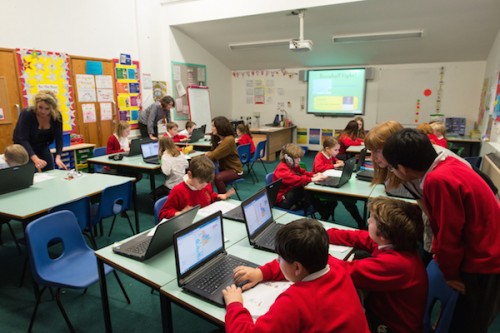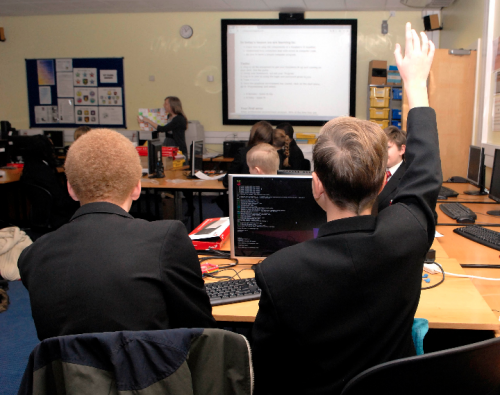Today we share a guest blog from Chris Roffey, who manages the UK Bebras Challenge, a computational thinking challenge we run every year in partnership with the University of Oxford.
Bebras is a free annual challenge that helps schools introduce computational thinking to their learners through online, self-marking tasks. Taking part in Bebras, students solve accessible, interesting problems using their developing computational thinking skills. No programming is involved in taking part. The UK challenge is for school students aged 6 to 18 years old, with a special category for students with severe visual impairments.

Preparing the UK Bebras Challenge for schools
While UK schools take part in Bebras throughout two weeks in November, for me the annual cycle starts much earlier. May is the time of the annual Bebras international workshop where the year’s new tasks get decided. In 2022, 60 countries were represented — some online, some in person. For nearly a week, computer scientists and computing teachers met to discuss and work on the new cycle’s task proposals submitted by participating countries a little earlier.

After the workshop, in collaboration with teams from other European countries, the UK Bebras team chose its task sets and then worked to localise, copy-edit, and test them to get them ready for schools participating in Bebras during November. From September, schools across the UK create accounts for their students, with over 360,000 students ultimately taking part in 2022. All in all, more than 3 million students from 59 countries took part in the 2022/2023 Bebras challenge cycle.
An invitation to the Oxford University Computing Challenge
In this cycle, the UK Bebras partnership between the Raspberry Pi Foundation and the University of Oxford has been extended to include the Oxford University Computing Challenge (OUCC). This is an invitation-based, online coding challenge for students aged 10 to 18, offered in the UK as well as Australia, Jamaica, and China. We invited the students with the top 10% best results in the UK Bebras challenge to take part in the OUCC — an exciting opportunity for them.
In contrast to Bebras, which doesn’t require participants to do any coding, the OUCC asks students to create code to solve computational thinking problems. This requires students to prepare and challenges them to develop their computational thinking skills further. The two younger age groups, 10- to 14-year-olds, solve problems using the Blockly programming language. The older two age groups can use one of the 11 programming languages that Bebras supports, including all the most common ones taught in UK schools.

Over 20,000 Bebras participants took up the invitation to the first round of the OUCC in the third week of January. Then in March, the top 20 participants from each of the four OUCC age groups took part in the final round. The finalists all did amazingly well. In the first round, many of them had solved all the available tasks correctly, even though the expectation is that participants only try to solve as many as they can within the round’s time limit. In the final round, a few of the finalists managed to repeat this feat with the even more advanced tasks — which is, in modern parlance, literally impossible!
Celebrating together
Many of the participants are about to take school exams, so the last stage of the annual cycle — the prize winners’ celebration day— takes place when the exam period has ended. This year we are holding this celebration on Friday 30 June at the Raspberry Pi Foundation’s headquarters in Cambridge. It will be a lovely way to finish the annual Bebras cycle and I am looking forward to it immensely.
Website: LINK

